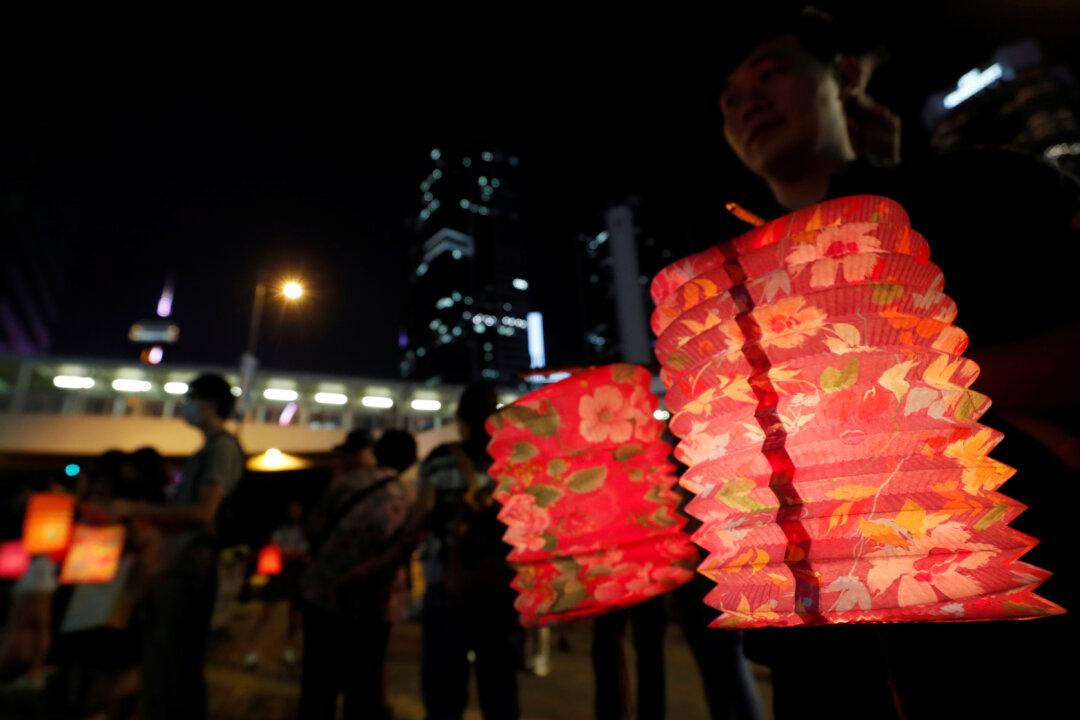HONG KONG–Hong Kong pro-democracy protesters took to the hills to form flashlight-carrying human chains on Sept. 13, using the Mid-Autumn Festival as a backdrop for the latest in more than three months of demonstrations that have sometimes flared into violence.
The peaceful protests, on a day when families traditionally gather to gaze at the moon and eat mooncakes while children swing colorful lanterns from the end of sticks, came after Hong Kong leader Carrie Lam promised to focus on housing and jobs to try to end the unrest.





